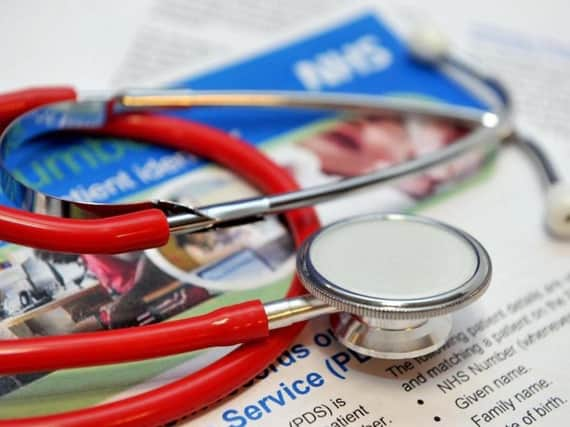Tax 'white van man' to fund NHS spending boost, says influential Tory Sarah Wollaston


Commons Health Committee chairwoman Sarah Wollaston also suggested young working age adults should not carry too much of the burden of paying for Theresa May’s £20bn boost to health spending.
The Prime Minister announced her plans for a 3.4 per cent boost to annual NHS England spending this month to mark the health service’s 70th anniversary on Thursday, but she has faced questions over how it will be funded.
Advertisement
Hide AdAdvertisement
Hide AdMs Wollaston has described her claims that a “Brexit dividend” would help pay for the proposals as “tosh”.
And the former GP called on the Government to be honest with the public, which she said would support tax rises if the money was ringfenced for the NHS.
“You have to be upfront with people from the get-go.
“The public have said they are happy to pay more for the NHS and they want to know it is going to the NHS.
Advertisement
Hide AdAdvertisement
Hide Ad“That means earmarking the taxation and I think that’s something that gives it greater support.”
Part of the plans should include a rise in national insurance contributions (NICs) for the self-employed, she said.
Chancellor Philip Hammond tried to hike class 4 NICs for the self-employed last year but was forced into a U-turn a week after his Budget after a rebellion from backbench Tories.
That was before the party lost its House of Commons majority.
Advertisement
Hide AdAdvertisement
Hide AdBut Ms Wollaston said it would be fair to ask the self-employed to pay more as they use NHS services like everyone else.
“I think that if we try and build a consensus from the start that if we’re talking about healthcare, do people who are self employed, who are an increasing percentage of the workforce, should they be exempted from making a contribution towards health and social care?
“I don’t think that would be fair personally, so it’s about having a conversation and bringing people with you and I think that should happen on a cross-party basis.”
Ms Wollaston also suggested pensioners should potentially be asked to contribute more, as she called for action to address the pressures faced by the social care system.
Advertisement
Hide AdAdvertisement
Hide AdAny decision to ask the public to contribute more needs to be “spread fairly across the generations” with young people already facing a “9 per cent graduate tax” on earnings over £25,000, astronomical house prices and less secure pensions, the Totnes MP said.
“I think that we need to be thinking about how we all make a contribution fairly, it mustn’t fall entirely on working age employed adults,” Ms Wollaston said.
Dr Richard Vautrey: GPs can’t carry on under this pressure as NHS approaches 70 The Health Committee chairwoman welcomed Mrs May’s promise of extra funding but warned it would not be enough on its own.
As well as social care, she identified public health as an area that needs attention away from the frontline health spending promised by the PM.
Advertisement
Hide AdAdvertisement
Hide AdShe also attacked Tory colleague and Chief Secretary to the Treasury Liz Truss for characterising measures to tackle childhood obesity such as the sugar tax as an attack on the “freedom to live”.
“We don’t really give enough attention to public health, to prevention,” Ms Wollaston said.
“I think partly it’s the politics of it, people sometimes don’t realise when a condition has been prevented by good public health measures, and it gets a bad press.
“Liz Truss we’ve had this week talking about the nanny state, after a very sensible set of proposals on childhood obesity.
“Although it’s easy to toss these things out and talk about nanny state, actually when you then say to people well what do you think about seatbelts? They say well that’s good."